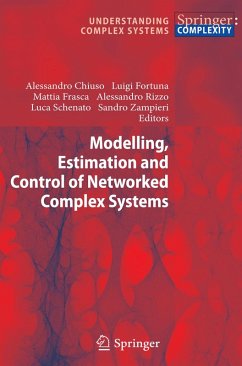The paradigm of complexity is pervading both science and engineering, leading to the emergence of novel approaches oriented at the development of a systemic view of the phenomena under study; the definition of powerful tools for modelling, estimation, and control; and the cross-fertilization of different disciplines and approaches. This book is devoted to networked systems which are one of the most promising paradigms of complexity. It is demonstrated that complex, dynamical networks are powerful tools to model, estimate, and control many interesting phenomena, like agent coordination, synchronization, social and economics events, networks of critical infrastructures, resources allocation, information processing, or control over communication networks. Moreover, it is shown how the recent technological advances in wireless communication and decreasing in cost and size of electronic devices are promoting the appearance of large inexpensive interconnected systems, each with computational, sensing and mobile capabilities.
Dieser Download kann aus rechtlichen Gründen nur mit Rechnungsadresse in A, B, BG, CY, CZ, D, DK, EW, E, FIN, F, GR, HR, H, IRL, I, LT, L, LR, M, NL, PL, P, R, S, SLO, SK ausgeliefert werden.









